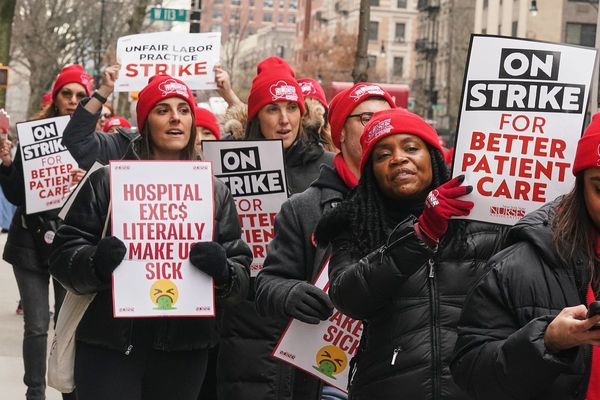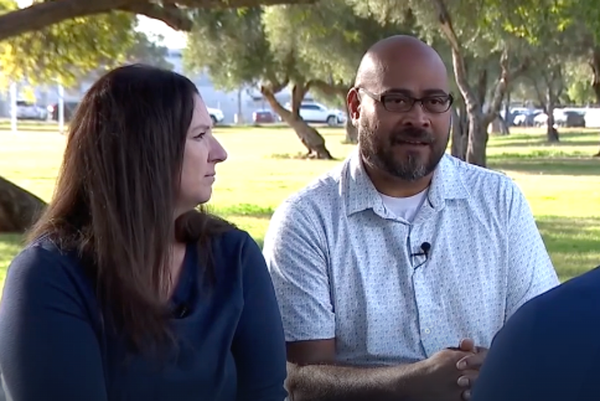CHICAGO — Scientists at the University of Chicago have come up with an intriguing potential treatment to combat cocaine and alcohol addictions — a skin graft genetically altered to release molecules that curb the craving for those substances.
The treatment has been shown to work in mice, and the researchers hope to begin human trials next year. If it proves itself there, it would be a valuable addition to a growing but still inadequate arsenal of addiction treatments, observers said.
“I think it would be wonderful to have more tools in our tool chest,” said Dr. Alta DeRoo, chief medical officer of the Hazelden Betty Ford Foundation. “We’ve seen (medication-dispensing) implants. We have devices that go behind the ear. This sounds wonderful if it works.”
The skin graft concept came from U. of C. researchers Xiaoyang Wu and Ming Xu, who, with Ryan Meyers, a former health care consultant who is getting an MBA at the university, formed a company called AddGraft Therapeutics to try to bring the invention to market.
The procedure begins with a thumbnail size piece of skin removed from the patient. The skin cells are genetically modified to release a molecule that regulates dopamine to dull cravings, and in the case of cocaine, an enzyme that breaks down the drug in case of relapse, Meyers said.
The cells are then grown until the skin piece reaches the size of two credit cards. It’s then grafted back onto the patient.
The researchers have used the grafts successfully on mice. The experiments, described in the journal Nature, involved giving the animals the option of drinking plain water or water adulterated with alcohol or cocaine, then taking the drugged water away.
Some of the mice then received the skin graft, which used human cells. When the drugged water returned, the treated mice tended to stick with plain water, unlike their control group counterparts, Meyers said.
“The relapse rate is extremely high in the untreated mouse population, where it’s extremely low in the treated population because they have less of the craving,” he said. “They’re not necessarily going to actually look for it.”
The skin graft that produces the cocaine-blocking enzyme had an even more dramatic effect. Researchers injected treated mice with twice the lethal level of the drug but few died, Meyers said.
Cocaine addiction has become a particularly urgent problem in the fentanyl age. Federal officials say dealers sometimes mix the powerful opioid into cocaine to increase its effects or addictive power, leading users to consume it unknowingly.
Cocaine-related deaths have soared over the last eight years, according to statistics from the Centers for Disease Control and Prevention. The jump is due almost entirely to cocaine being taken in combination with opioids.
Even so, the nation’s roughly 20,000 cocaine deaths each year are just a fraction of the more than 95,000 annual deaths due to alcohol. The CDC says more than half of those are due to chronic excessive drinking.
The skin grafts are part of a new wave of addiction treatment that tries to automate resistance to addictive substances. A medication called naltrexone, which curbs the craving for alcohol and opioids, can be injected into the body. Researchers have also developed implants that automatically release the lifesaving drug naloxone if a person overdoses on opioids.
Those come on top of oral medications used in addiction treatment. But Dr. Tom Wright, chief medical officer of the Rosecrance treatment center, said it can be hard to keep people on those regimens.
“One of the biggest reasons people fail is what we call adherence — continuing to use (their medication),” he said. “Getting people to comply is very hard. From a delivery perspective, (the skin graft) is a great technique.”
Michael Darcy, former CEO of the Gateway Foundation treatment organization, is an unpaid member of AddGraft’s board of advisers. He said while the skin grafts shouldn’t be seen as a silver bullet against addiction, they could cut down on the high cost of residential treatment — or in more dire cases, prison — by shoring up a person’s biological defenses.
They could also make a big difference in particular circumstances, such as a person whose inability to stop drinking ruins their chance of getting a liver transplant, he said.
“The AddGraft is just another option for people,” he said. “I don’t think AddGraft is going to replace medication-assisted treatment or outpatient treatment or residential treatment, but it does add another possibility, especially for people who are continuously relapsing.”
Wu said the company will seek approval from the Food and Drug Administration to begin clinical trials with the treatment, but that it could take five years or longer before it’s available to the public.
Meyers said the skin grafts might someday be used to treat other conditions, such as diabetes, cognitive decline, obesity or thyroid problems, or to produce testosterone or estrogen for people going through gender transition.
And while public misgivings over new medical treatments have been evident during the COVID-19 pandemic, Meyers said he and his colleagues have been encouraged by the initial response to the skin grafts.
“We’ve gotten some heartbreaking emails from individuals asking to be in clinical trials,” he said. “We don’t necessarily think (acceptance) is an issue, but as gene therapy becomes more publicly available, it will be interesting to see how the public accepts that, especially in an age where vaccine technology is questioned. That’s a lot simpler than what we’re doing.”







